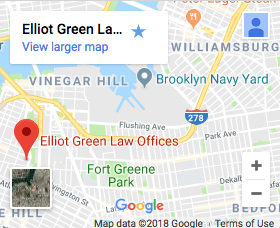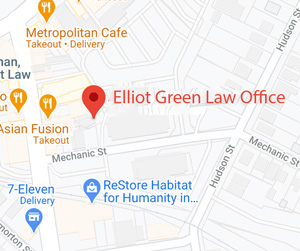Marriage ties together two people together emotionally, but also financially. Over time, you and your former partner might have acquired assets, property, savings accounts, and retirement accounts. You and your former partner may have purchased life insurance policies that may have gained in value since you married. You may share a family home. If you are getting divorced, you’ll need to make decisions about how to divide your assets. One of the challenges when splitting property and assets involves determining which assets are marital property and which assets should be considered separate property, that is, property which was owned separately before the marriage. In some cases, the answers to these questions is not entirely straightforward and may even require some negotiation. The Elliot Green Law Offices are divorce lawyers in Brooklyn, New York who can assist you with the process of dividing property and assets during your divorce. Contact us today to discuss your situation and to learn more about your options and rights.
Marital Property Versus Separate Property: What is the Difference?
Before you can divide your assets in divorce, you and your former partner will need to determine which property is marital property and which is separate property. According to the New York City Bar, any property or assets or cash savings you owned before you entered the marriage is considered separate property, and is yours. Any property purchased or acquired during the marriage will be considered marital property and will be subject to division during divorce under New York’s equitable distribution law. Sometimes property acquired during the marriage may not be considered marital property if you and your former spouse have a prenuptial agreement in place. What assets can be considered marital property?
- Real estate and the family home.
- Any items like cars or boats that you and your partner purchased during the marriage.
- Bank accounts or savings accounts.
- Retirement accounts.
These are just some of the things that may be considered marital property. Separate property can include a range of items. These items can include:
- Real estate purchased separately or acquired before the marriage.
- Personal property owned before the marriage.
- Anything of value received as an inheritance either during the marriage or before the marriage.
- Increase in value to separately owned property or value added due to improvements for separate property.
These are just some of the assets that may be considered separate property during a divorce. However, separate property is often comingled during a marriage. For example, if you owned real estate on your own, if your spouse made repairs to the home, or helped pay the mortgage, the courts may consider your spouse’s contribution during the marriage when dividing property. If you had a bank account and added your partner’s name to the account and you both contributed to the account, this account may be considered a marital account going forward. These are just some examples of situations where separate property might be considered marital property.
So, how can you distinguish between what is yours and what is shared and subject to equitable division under New York’s divorce laws? Consider speaking to a divorce attorney, like the Elliot Green Law Offices in Brooklyn, New York today. Our firm can look at your financial picture, look at your documentation, and help you understand your options and rights going forward.
New York’s Equitable Division Laws
Property that is considered marital property is subject to New York’s equitable division laws. In New York, marital property is not split 50-50. Instead, the courts will evaluate several factors to determine who gets what. What are these factors? According to the New York City Bar these factors include:
- Income and property each partner had at the start of the marriage and the income and property owned by both partners at their divorce.
- How long you were married.
- How old you are.
- Whether you have children and whether the parent with primary custody needs to keep the family home so that the children have a place to live.
- Whether one partner will lose access to a pension or inheritance as a result of the divorce.
- Whether one partner will lose access to health insurance benefits due to the divorce.
- Whether one partner made contributions to the other partner that may not result in tangible assets. For example, if one partner helped the other financially while the partner earned a degree, this could factor in to how property and assets are split later.
- If business values have increased or if values of assets are difficult to determine by the courts, then this may need to be factored when dividing property and assets.
- The court may consider the tax implications of any property or asset division.
- If one party in the marriage spent money gambling, or spent money during bouts of infidelity, this dissipation of assets may be factored into the division of property.
- If one partner sold property or assets for less than they were worth, the other partner may be entitled to compensation.
These are just some of the factors that must be considered when dividing assets. If there is a prenuptial agreement in place, the courts will need to consider this as well. The Elliot Green Law Offices is a divorce lawyer in Brooklyn, New York who may be able to assist you as you navigate the process of negotiating a division of your assets during divorce.
Elliot Green Law Offices: Helping You Navigate the Financial Questions That Arise During Divorce
If you are planning on getting divorced, you and your former spouse will need to make decisions about how to divide assets and debts. The Elliot Green Law Offices is a divorce lawyer in Brooklyn, New York who can help you ask the tough questions that must be considered when determining what property is separate or shared. Our firm can review any prenuptial agreements and assist you with negotiating a divorce settlement that is in line with New York’s equitable distribution laws. Contact the Elliot Green Law Offices today to begin the process.


